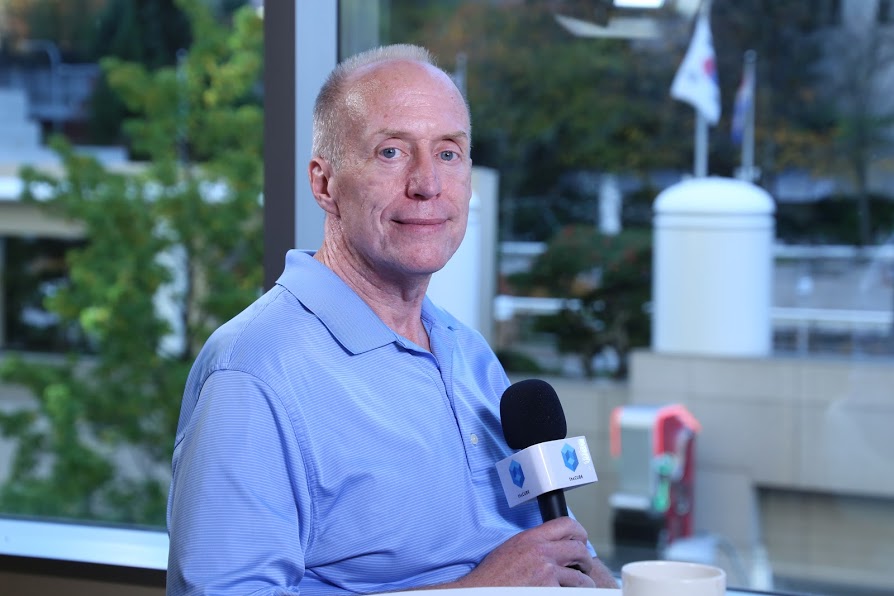 NEWS
NEWS
 NEWS
NEWS
 NEWS
NEWS
As we look to the enterprise for signals of Kubernetes’ maturity, Samsung SDS America Inc., provides an interesting use case. The company has been working on Kubernetes (the open-source container cluster management software project by Google Inc.) for the past two years and serves on the Cloud Native Computing Foundation board, paving the way for the growth and development of its clients through innovation using IT in data processing operations, system integration, IT services and current information and technology services, according to Richard Kaufmann, VP at Samsung SDS America.
Kaufmann joined John Furrier (@furrier), co-host of theCUBE*, from the SiliconANGLE Media team, during KubeCon 2016 in Seattle, WA. They spoke about the scalability and flexibility of Kubernetes, as well as the importance of open-source contributors to the project.
Furrier pointed out that this conference, in many ways, is really about the future. He asked, “What do you think interests customers? What do you think is the bridge between IT and customers?”
“From the perspective of an IT provider, ‘How do we figure out both making the new apps happy on this technology … and how do we bridge this with our legacy stuff?’ Kubernetes is good because it provides a way to run this technology in a way that’s cloud-provider independent,” said Kaufmann. “You can run it externally or internally without getting locked into one provider or your own vendor choices.”
He also pointed out that if you adopt the overall techniques, you can deploy the changes rapidly and change your applications over quickly — or scale them up and down, depending on workloads, thereby helping you to run quite efficiently.
Once its automation kicks in, Kubernetes provides multi-cloud capability, which puts pressure on web services. Furrier made the point that if switching costs become almost zero, the competition switches to down below the stack, for the cloud guys, and that is an interesting dynamic: Kubernetes will force the major cloud guys to get stronger, better, at the lower end of the stack, Furrier stated.
Kaufmann agreed, and said, “From the perspective of our customers, inside and outside Samsung, our interest is in allowing them to be as flexible as possible, without getting locked into a one-cloud provider. So don’t get locked in for strategic reasons, don’t get locked in for financial reasons, and don’t get locked in for geographic reasons. Samsung is an exceptionally global company, and if we need to go into Africa, we need to go into Africa, it doesn’t matter if one cloud provider is there or not. We need to be able to deploy there when we want.”
Furrier asked what Kaufmann thought about the staying power of Kubernetes’ open-source mission.
Kaufmann said he thinks it’s very positive. “The number two contributor to Kubernetes is ‘everybody else.’ Forty-something percent [was] Google; 43 percent was ‘unidentified’ — that means individuals, either from [some other] company or else from individual users. That’s huge. It’s gone in one year, from being a ‘Google project’ to being a ‘plurality Google, but majority other folks’; and most of the other folks were miscellaneous developers working on it.”
*Disclosure: The Linux Foundation and other companies sponsor some KubeCon 2016 segments on SiliconANGLE Media’s theCUBE. Neither The Linux Foundation nor other sponsors have editorial control over content on theCUBE or SiliconANGLE.
Watch the complete video interview below, and be sure to check out more of SiliconANGLE and theCUBE’s coverage of KubeCon 2016.
THANK YOU